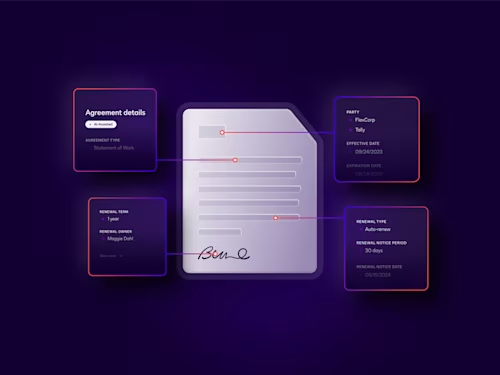
The 5 Best Start-Up Investments According to Thriving Small Businesses
Founders and CEOs share the best upfront investments for nurturing start-up success.

When it comes to starting a business, everyone wishes they had a crystal ball. In a world where roughly 90% of all start-ups fail, strategic investments in technology and talent can better prepare your business for future obstacles and opportunities—as can insights from founders rich in customer successes, experiences and learned wisdom. That’s why we spoke with four entrepreneurs at the heads of thriving and expanding small businesses in industries spanning leadership consulting, content marketing, small business development, and co-working space.
After putting years into solving problems like slow contract turnarounds and hiring hiccups, these founders and CEOs share the best upfront investments for nurturing start-up success.
1. Finance and bookkeeping software
When you start a business in your area of expertise, you likely won’t have the time or know-how to also handle the bookkeeping, compliance and tax responsibilities. Fortunately, many affordable finance platforms can take care of these important tasks from the start. Implementing software such as QuickBooks, Xero, Wave, NetSuite or Gusto—or even outsourcing accounting and bookkeeping to a qualified professional—can make for a powerful early investment.
For first-time business owners, it may be tempting to save a few dollars by handling these financial duties themselves, but this path comes with several risks. Without the time or expertise to manage all financial concerns, you could create unintentional compliance and tax gaps—and trigger monetary and reputational blowback. What’s more, the opportunity cost of diverting your attention is high. Every moment you take away from the activities only you can do is a moment lost for building strategic partnerships and pursuing growth opportunities.
2. Website and branding investments
Branding is one investment that may have start-ups wondering whether to splurge or save. Your business’s brand and website is its public face, introducing customers to who you are and what you can do. Some founders attest to the importance of developing a brand story early on, along with a beautiful website to reflect it. But if entrepreneurs are more concerned with limiting overhead costs and first developing strong customer relationships, they should avoid high initial branding and marketing investments. Simple, low-cost website builders such as GoDaddy and Squarespace are perfect tools to help you set up a functional first website until the business brings in regular revenue.
3. Project management technology
Your time is one of your most valuable, but limited, assets—and a slow project management process can produce dramatic inefficiencies. While it may seem reasonable to complete project management tasks without the assistance of technology at first, your time investments will compound as you scale, especially for processes your business completes regularly. For example, if you conduct several review cycles a year, produce and share high volumes of content or juggle other quarterly goals, a tedious tracking and collaboration strategy—involving disjointed spreadsheets and documents—can slow your business at a crucial stage.
To maximize your productivity and stay on top of your goals, project management software can be extremely useful in tracking your daily and long-term progress and keeping you accountable to milestones. Project management and cloud-based technology such as Asana, Evernote and Monday are among the most popular choices. These software consolidate and organize important goals to streamline collaboration and reduce time investments.
4. Scalable digital contract tools
In the early days of your company, each team member can be responsible for wearing many hats and working long hours to keep business moving. While you may be able to handle a few contracts a week using a manual, paper-based process, your contract load will inevitably scale with your business—from annual renegotiations to vendor replacements—and can easily overwhelm even the most dedicated, but limited staff. The bottom line? You need digital tools that not only fulfill today’s needs but ones that you can rely on to meet your growing needs in the years ahead.
In a plugged-in world, an increasing number of companies are turning to digital agreement software to boost the ease, security, and scalability of contract workflows. Docusign eSignature standardizes and automates basic contract management tasks—from routing to storage—to accelerate workflows and drive customer loyalty through an easier signing experience. For even more comprehensive support, Docusign CLM centralizes contracts activity and offers end-to-end support—before, during and after signature—giving your team back time to focus on high-level strategy and growth opportunities.
While some agreement tools are marketed specifically to small businesses, choosing a platform with wide name recognition and long-standing industry trust like Docusign can lend your NDAs, sales agreements and other external documents extra credibility and professionalism at a time when it’s extremely crucial. As you go beyond the small-business category, a platform with built-in scalability grows with your business, without forcing your team to learn new tools.
5. The people behind your business
Beyond your tech stack, investments in the people who operate your business are investments in its long-term success. With a capable, collaborative team, start-up scaling doesn't have to rely on the founder’s skills and attention alone. Online platforms like LinkedIn and Upwork give you access to a network of high-quality candidates, freelancers and contractors. Once you’ve recruited a strong staff, implementing a structured training program instills good habits in new hires, further saving you time to grow your business.
Even for those working as a team of one, there are ways to increase human capital and enable long-term scaling. As of 2023, 8 in 10 small businesses have no employees beyond the owner. Single-person ventures can boost their credibility by proving their expertise through reputable industry certifications.
The birth of your business is a time of excitement and uncertainty. By investing in Docusign eSignature, your start-up can create a reliably faster and more collaborative revenue-generating process—accelerating purchase orders, SOWs and other crucial revenue streams.
Try Docusign for free to see how digital agreements can start your business off on the right foot.
Related posts
Docusign IAM is the agreement platform your business needs


